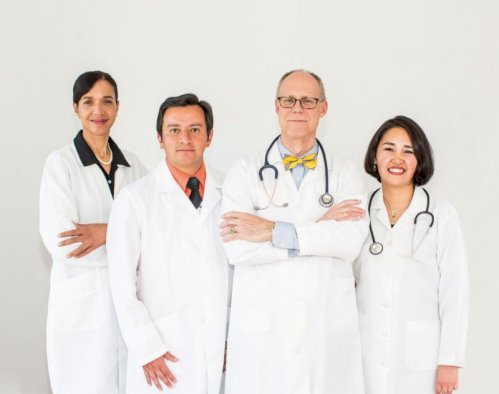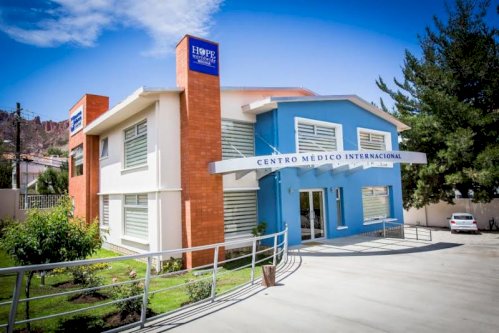Panel Physician Creates Sustainable Primary Care Clinic in Bolivia
By Jordan Beck

There was a need for a clinic in Bolivia and Dr. Broyles was excited for another opportunity to serve. HOPE worldwide is an international charity that changes lives by harnessing the compassion and commitment of dedicated staff and volunteers to deliver sustainable, high-impact, community-based services to the poor and needy.
"We built the clinic for people who have the means to pay for it," said Broyles. "Quality of healthcare in Bolivia was frustrating for the local community. There was an opportunity to open a clinic and use all of the profit to provide care for the poor."
The clinic provides services for individuals in Bolivia who can afford to pay for health care, but whose needs are not being met by local healthcare. The clinic which Dr. Broyles leads, Centro Medico Internacional HOPE, is a for-profit ambulatory healthcare clinic which donates 100% of its profit to fund the charitable work of Fundacion Arco Iris and HOPE worldwide Bolivia. The initiatives of HOPE worldwide Bolivia span to both health and social services.
Dr. Broyles has been working in Bolivia for five years and has seen progress. He began working as a Panel Physician screening United States bound immigrants this past May. With his team, Broyles has found a cost-effective way to implement the new Gonorrhea Technical Instructions by working with the Ministry of Health. They now have access to a gonorrhea test and have voiced the necessity of having approved tests for TB as well for the Bolivian population.
"There is no approved TB test in the country," said Broyles. "We have been working on getting a TB test approved and an IGRA is in the process of being approved."
This progress has required much effort and work by Broyles and his team. They work 80 hour weeks or more and constantly face obstacles common to low-income countries. The difference in traditions, culture, language barriers, and little to no collaboration amongst the healthcare community are a few barriers Broyles and his team were faced with. They also must overcome misconceptions about who they are and what they are doing.

As part of IPPA's annual Peer-to-Peer site visit program, we sent IPPA member and Panel Physician, Dr. Viviana Melinchon to Bolivia to visit Dr. Broyles' clinic.
"It was super helpful!" Broyles said. "Meeting with Dr. Melinchon as a new friend is very helpful. Having her support and advice and partnership has been so helpful and we are grateful. The working relationship we have with IPPA and other Panel Physicians is beneficial to our clinic."
This article was published under the category General on 01/11/2017 08:00.